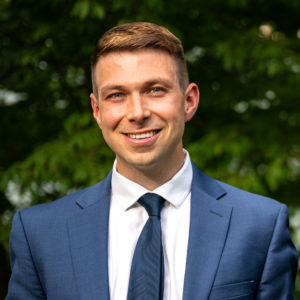In 2022, California enacted AB 2273, or the Age-Appropriate Design Code Act (AADC), a sweeping restriction that requires websites to try to determine their users’ ages and to restrict access to constitutionally protected speech.
Beyond its First Amendment violations, AB 2273 is unconstitutional under the Dormant Commerce Clause because it regulates behavior and activities that take place outside of California. The law also imposes requirements on websites for the use, tracking, and storage of information about their users who are under the age of 18. These requirements conflict with COPPA, a federal law that governs how websites handle minors’ data. Therefore, AB 2273 also violates the Constitution’s Supremacy Clause.
Proponents of AB 2273 claim that it was designed to protect minors and their data, but it purports to do so by replacing parental oversight with government control. Parents and guardians are best suited to guide the online experience for their children.
Read our full complaint here.
Chris Marchese
Paul Taske

Court Filings
- NetChoice’s Complaint
The Northern District of California issued its decision on September 18, 2023, granting NetChoice’s request for a preliminary injunction.
NetChoice’s Motion for Preliminary Injunction
NetChoice’s Supplemental Brief
District Court’s Ruling on September 18, 2023, granting the preliminary injunction.
Filings in Support of our Motion for Preliminary Injunction:
- Briefs:
- Declarations:
Filings in Opposition of our Motion for Preliminary Injunction:
- Briefs:
- Declarations
On August 16, 2024, the U.S. Court of Appeals for the Ninth Circuit ruled in NetChoice’s favor, noting that the AADC’s Data Protection Impact Assessment (DPIA) requirement likely violates the First Amendment by compelling speech and commandeering private companies to act as roving censors.
- Press statement on the Ninth Circuit’s ruling
On October 23, 2023, the State of California filed notice of its intent to appeal the District Court’s decision granting a preliminary injunction.
California filed its opening brief on December 13, 2023.
NetChoice filed its response brief on February 7, 2024.
Amicus Briefs
Briefs in Support of NetChoice
- ACLU & ACLU NorCal
- Computer and Communications Industry Association
- Chamber of Commerce
- Chamber of Progress, et al
- Electronic Frontier Foundation and Center for Democracy & Technology
- International Center for Law and Economics
- Prof. Eric Goldman
- Reporters Committee for Freedom of the Press, et al
- TechFreedom
- The Copia Institute

